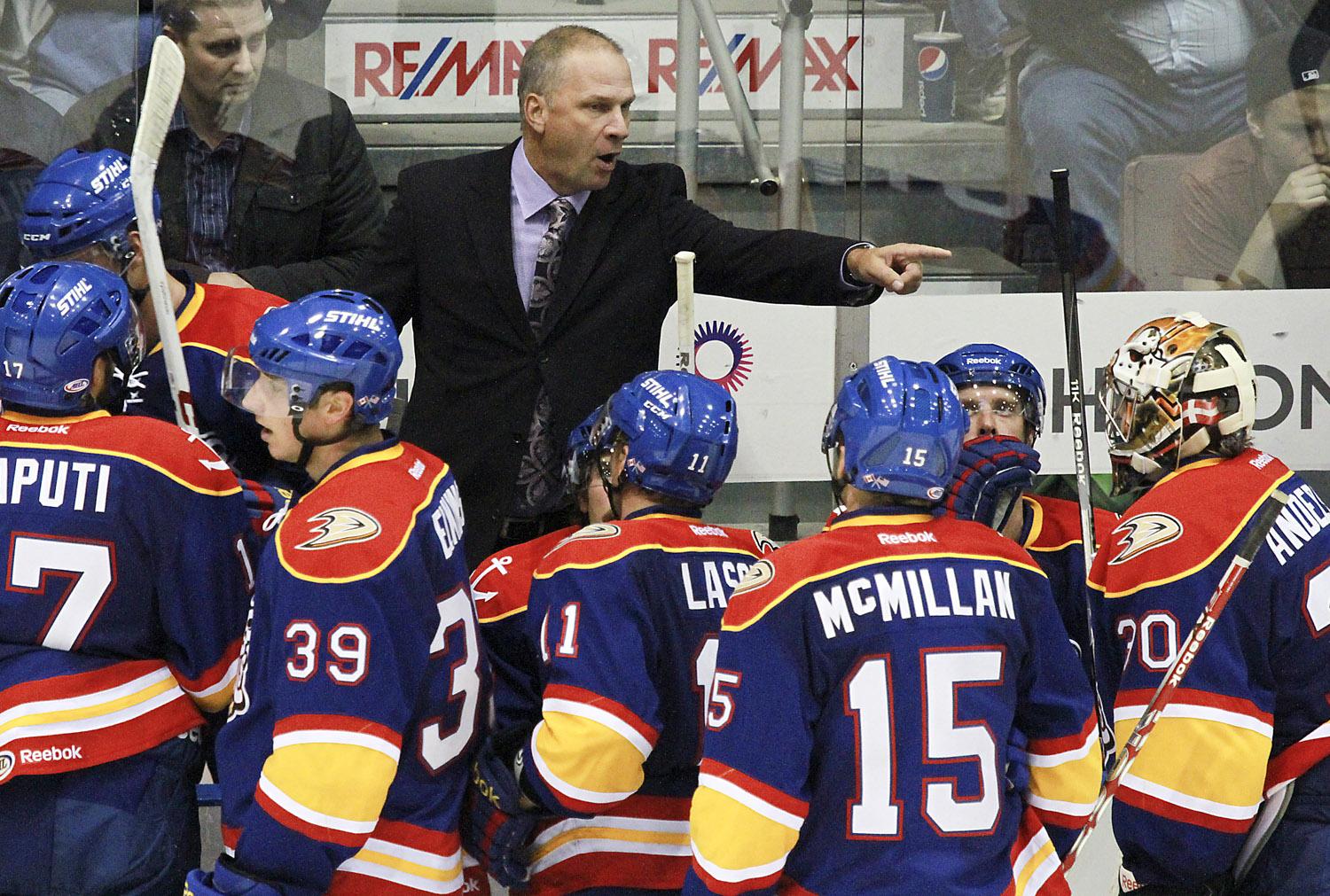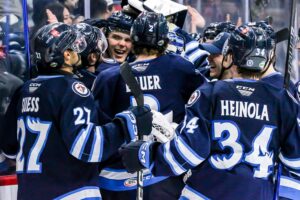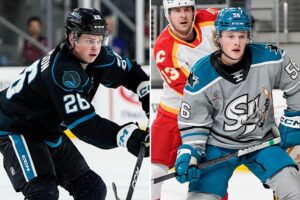By Joey Martelli || AHL On The Beat Archive
The numbers read off like the receipts in your car after Christmas shopping; 550, 317, 368, 444, etc. The Norfolk Admirals are not using those numbers to buy iPads, computers or any other gifts; rather those numbers are the amount of miles the Admirals travel to reach opponent arenas in the American Hockey League.
The Admirals find themselves in buses and hotels more often than most other AHL teams due to the location of the city they call home. Norfolk, Va., is located 317 miles away from the Admirals’ closest foe, the Hershey Bears in Hershey, Pa. The next-closest team to Norfolk is the Charlotte Checkers in Charlotte, N.C., who are located 326 miles away. Eight of Norfolk’s 13 regular season opponents are located 500 or more miles away.
Heading into this weekend, the Admirals have traveled 10,778 total miles, although 4,046 of those miles came from the Admirals’ first road trip to St. John’s, N.L. They took an airplane for that journey, so the round trip did not take the estimated 82 hours by bus.
Still, the Admirals have traveled more than 6,732 miles on the bus this season. Naturally one must ask, what do you do on the bus for hours on end?
The voice of the Admirals Pete Michaud said, "Some guys play cards, a lot of guys sleep, some guys read. Obviously the iPods, computers, iPads and personal DVDs are kind of the norm these days."
Right winger Devante Smith-Pelly says he uses the time to "just rest and relax and hang out with the guys."
Norfolk has struggled a bit on the road through the first 16 games, with a 6-10-0-0 record. However, the team isn’t using the long bus rides a reason for their poor play on the road.
"As a team we have to get used to [the travel] and it can’t be an excuse," defensemen Matt Smaby said.
Although the Admirals have gotten off to a rough start, they still have a majority of their road games in front of them. There are 21 games left away from the friendly confines of Norfolk Scope Arena, and Admirals head coach Trent Yawney sees some positives in time spent on the road.
"Chemistry [is the biggest positive]," said Yawney. "I think that you spend a lot of time together both on the bus and on the road, and that’s important for getting to know people.”
The circus actually brought the 2007-08 Admirals closer, as Smaby remembered from his first stint with Norfolk. That trip was spread out over nearly three weeks as the Admirals played nine games on the road with the circus taking over Norfolk Scope Arena.
“That was pretty grueling,” said Smaby. “Being away from [Scope] for three weeks was pretty tough, but it brought us all together.”
Being on the road so much also produces stories that will be told for many years. Michaud remembered one such story from January 2011. The fuel lines in the Admirals’ bus froze as temperatures in Portland, Maine, reached 15 degrees below zero. The team had to call in a backup bus. Once repaired, the original bus followed the Admirals to Manchester, New Hampshire, for a game against the Monarchs.
Then, the Admirals encountered a blizzard on the way home from Manchester to Virginia.
Michaud said, “We were driving back and got stuck literally in the middle of the interstate about 20 miles from Hartford, Connecticut. We had to sit there and sleep on the bus overnight until snow plows came and cleared the interstate the next morning.”
Thankfully, the Admirals haven’t had any major travel issues this season. However, they will be ready for whatever the road ahead brings. The longest road trip of 2012-13 is still to come, as the Admirals finish up the regular season with six straight games on the road in April.
Probably the toughest part of any road trip is the scenario where a team has to play three games in three nights in three cities. Norfolk has done that twice already this season with two more sets to go, including one the final weekend of the regular season.
Center Peter Holland said, "By the third game it’s completely a mental game. The six inches between your ears are what’s going to win or lose you that game."
Sometimes on the long road trips it’s tough to see the light at the end of the tunnel especially when you are in a different city every night.
Smaby says, "It’s all about staying focused and having short-term goals."
Despite the fatigue and potential travel issues, Norfolk’s time on the road does have merits according to Michaud and Yawney.
“You’re spending a lot of time in hotels, on busses and eating together," said Michaud. "A lot of the Admirals teams that I have seen over the years have, at least according to the players that have been with other teams in others cities, have grown closer together than other clubs.”
Yawney agrees, stating, "It’s a part of growth and part of being a professional. Growth in this league is not comfortable and that’s why it’s one of the best development leagues in the world."
With 11,328 miles still to travel on the bus in 2012-13, the Admirals hope the miles ahead will bring them not only closer together as a team but also closer to their ultimate goal: a berth in the 2013 Calder Cup Playoffs.






































